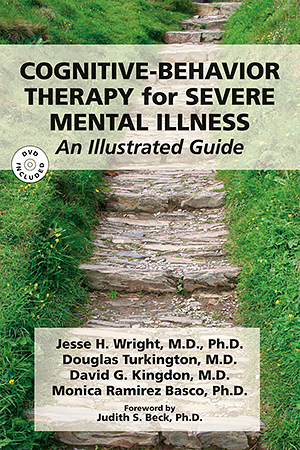Chapter 7.Depression
Sections
Excerpt
This chapter focuses primarily on severe and treatment-resistant depression. However, the methods described here can be applied in CBT with other severe mental illnesses. For example, suicidality in patients with schizophrenia or bipolar disorder can be addressed with the same type of antisuicide plan used in persons with major depression. Also, methods for increasing pleasure and involvement in activities can be modified for use in patients with psychosis who have apathy, social withdrawal, or secondary depression. Thus, this chapter is designed to help clinicians treat patients who have a broad range of depressive symptoms and a variety of diagnoses.
Access content
To read the fulltext, please use one of the options below to sign in or purchase access.- Personal login
- Institutional Login
- Sign in via OpenAthens
- Register for access
-
Please login/register if you wish to pair your device and check access availability.
Not a subscriber?
PsychiatryOnline subscription options offer access to the DSM-5 library, books, journals, CME, and patient resources. This all-in-one virtual library provides psychiatrists and mental health professionals with key resources for diagnosis, treatment, research, and professional development.
Need more help? PsychiatryOnline Customer Service may be reached by emailing [email protected] or by calling 800-368-5777 (in the U.S.) or 703-907-7322 (outside the U.S.).



